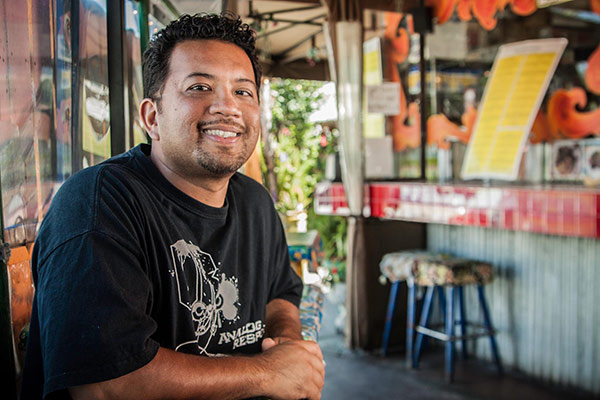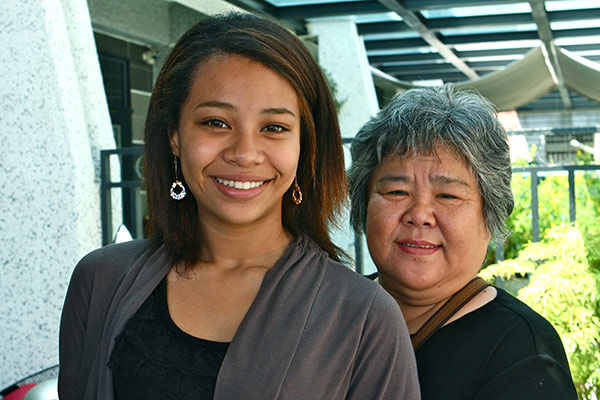What does it mean to be Taiwanese and mixed race in the 21st century? And when those multi-racials have black or Latino heritage, how do they fit into Taiwan’s society? Those are some of the questions Oakland based Daniel D. Zarazua hopes to explore in an upcoming book and photography book.
I first met Zarazua at the NATWA conference last spring. Yes, the North American Taiwanese Women’s Association. He was there to support his sister, Monica Zarazua, who was on a panel with me to discuss interrracial identities in the Taiwanese American community. At the time, he mentioned his plans to leave his position as the principal of an inner-city high school and live in Taiwan to research the island’s growing Black and Latino population.The Zarazuas have a Taiwanese American mother and a Mexican American father. While Daniel was born in Taiwan, he felt increasingly disconnected with Taiwanese and Taiwanese Americans, even as he attended the infamous “Love Boat” program aimed at bringing ethnic Taiwanese college students back to their homeland.
There was often such a huge disconnect in our experiences and to be quite frank, a lot negative views of African Americans and Latinos. This wasn’t everyone of course, but it was challenging as I wasn’t about to turn my back on my friends or family.
Taiwan’s history of immigration and colonialization shows the influences of many cultures, including Chinese, Japanese, Indigenous, Dutch and Portugese. But how do Blacks and Latinos fit into the island’s evolving society? Just like there isn’t one universal experience for black or Latinos in Taiwan, multi-racials can also experience very different reactions, often depending on how much their appearances blend in or stand out among the locals.
A young woman who is petite and a blend of White and Taiwanese ancestry might be seen as exotically beautiful. Another young woman who is a blend of Black and Taiwanese might be more curvy and be deemed as “fat” or unattractive due to prevailing ideas of what it means to be attractive. Someone who is more indigenous or Asian looking might not even garner a response. Generally speaking, I don’t think most multiracial people are seen as being “real Taiwanese.” I’ve found that people are more accepting but there is still a lot of work to be done.
Given some of Zarazua’s early experiences with feeling alienated amongst Taiwanese, I wouldn’t have faulted him if he lost interest in the Asian side of his heritage. Even though the concepts of race and increasing diversity can be complicated, Zarazua is dedicated to remaining engaged with Taiwanese people. He’s curious to see if a multiracial person can reach a high-level position in government or business, roles which would signal the acceptance of mixed-race individuals into Taiwanese society.
I truly believe that Taiwan is in a good position to be a model of progressiveness if it can proactively engage in discussions about race and other social issues, implementing laws and culture building that is equitable.
Want to support Taiwan is My Home: Stories of the Black and Latino Diaspora? Check out the Taiwan is My Home Kickstarter, where even a donation of just $5 will help Daniel D. Zarazua reach his $5000 goal.



I wish Daniel lots of luck in his work in Tawain. May he become even broader and deeper in understanding.